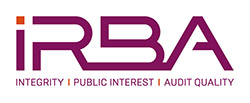Audit Tenure and Concentration
|
Long audit tenure by the firms as well as by members of the engagement team may also create potential threats, real or perceived, to independence and pose a risk to audit quality. Globally regulators expressed concerns that the desire to retain clients and the familiarity created between auditors and management might over time impair auditor independence, which in turn could adversely affect audit quality. This resulted in a global debate on how best to address the issue. The Economic Affairs Committee of the UK Parliament published its Second Report into Auditors: Market concentration and their role in March 2011, which raised concerns around market concentration in the FTSE and noted long tenure. The inquiry - originally motivated by the House of Lord’s concerns around the concentration of large-firm audit in the hands of the Big Four, and the consequent impact on competition, choice, price and quality - found that the lack of competition meant that a FTSE 100 auditor remained in place for about 48 years on average. The FTSE 250 average tenure was 36 years. Nearly all these companies had Big Four auditors. This despite various recommendations instituted by the Financial Reporting Council as early as 2007 which sought to decrease concentration via greater transparency for shareholders, increased shareholder involvement and disclosures by audit committees. These had been largely ignored by companies and auditors. The 2011 report recommended that a regular tender, with a non-Big Four auditor invited to participate, would promote greater competition to the benefit of both cost and quality. The initial recommendation was for FTSE 350 companies to carry out a mandatory tender of their audit contract every 5 years. It further recommended that the Audit Committee should be required to include detailed reasons for their choice of auditors in their report to shareholders. The UK would implement mandatory audit tender which was required every ten with an extension for 4 years up to a maximum of 24 years for joint audit. It would later incorporate mandatory rotation to bring it in line with EU requirements. In 2015, to address the threat associated with long audit firm tenure, the IRBA made the decision to require the mandatory disclosure of audit tenure, which is consistent with measures implemented in other jurisdictions. In terms of sections 9 and 10 read with sections 1, 2 and 3 of the Auditing Profession Act, Act 26 of 2005, the IRBA published a Rule in the Government Gazette Nr 39475 of 04 December 2015 which makes it mandatory that all auditor's reports on Annual Financial Statements shall disclose the number of years which the audit firm/sole practitioner has been the auditor of the entity (audit tenure). A study was performed to determine the audit tenure being disclosed in published audit reports of companies listed on the JSE since the commencement of this requirement. A review of this information revealed that in the most extreme case the audit firm tenure was 114 years, with others at 91 66, 72, 48, 40 and 35 years. In this regard, the Public Investment Corporation (PIC), which holds 12.5% of the market capitalisation of the JSE Top 40 listed companies, highlighted that it has voted against the reappointment of auditors where the audit firm had been auditing an entity for more than nine years, as it believes that after nine years there is a familiarity threat, which may impair auditor independence. With such long tenures, it was not surprising that with so little opportunity for other firms to access essentially a closed market, that in terms of concentration of the market, this study found that more than 90% of the market capitalisation of the JSE were audited by a member of the Big Four. Relevant documents |





